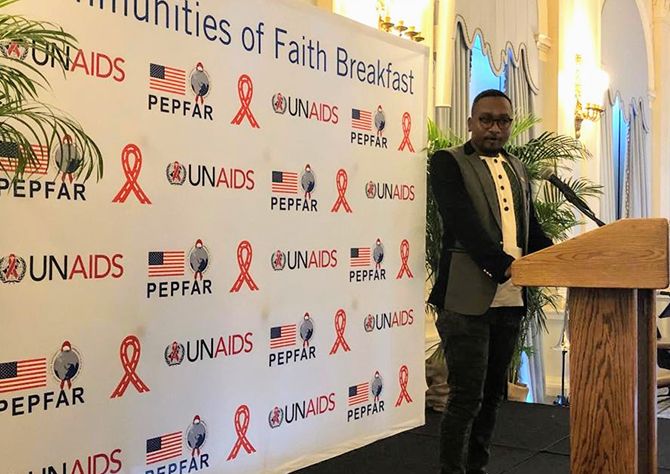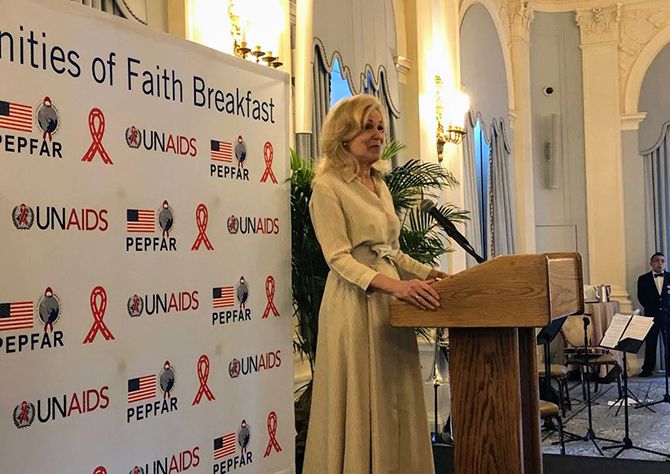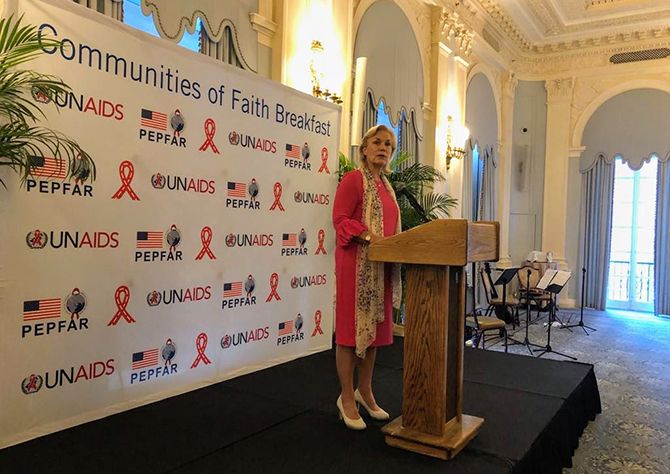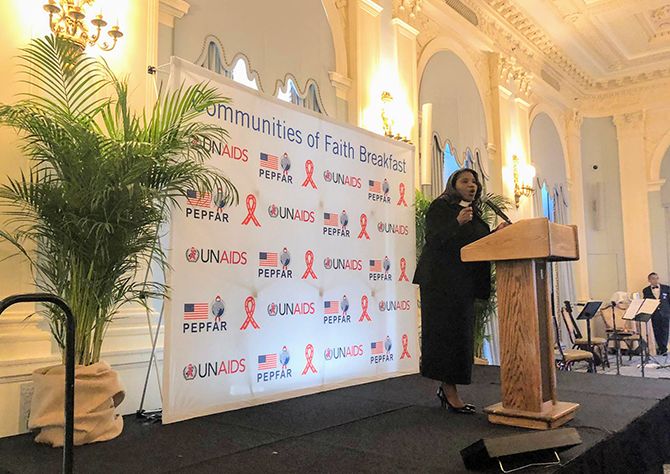





Feature Story
Communities of faith―helping to find the missing men and seeking justice for children
26 September 2019
26 September 2019 26 September 2019Bobby was born in 1996 in the small, mountainous country of Lesotho. His mother was living with HIV, and, unknown to him, he was born with the virus. He lost his little brother when he was just four years old and his little sister when she was just six to meningitis—a devasting blow to Bobby. Life was hard, and at 12 years old he received news that was to change his life forever. He was diagnosed with tuberculosis and found out that both his mother and father were living with HIV.
But Bobby didn’t give up. “Some people wanted to break me, but they only made me stronger. Some people wanted to exploit me, but they only made me smarter,” said Bobby. “Taking pills and going from an HIV-positive child to an HIV-positive activist has not been easy. I faced a lot of stigma and discrimination. But one of my biggest dreams is to live and to contribute, which is why I’m here today.”
On 26 September, Bobby shared his journey with an audience of more than 150 faith leaders and partners working on HIV at the Communities of Faith Breakfast, held at the Yale Club, on the sidelines of the United Nations General Assembly in New York, United States of America.
Bobby’s story and the thousands of others like his have inspired faith groups around the world to take action to stop new HIV infections and support people living with and affected by the virus. Speaking at the event, the Minister of Health of Zambia, Chitalu Chilufya, shared how faith leaders in his country are playing an important role in improving the health and well-being of their congregations, particularly by reaching men.
“We have several ministers that hold health Sundays, bringing in doctors to engage their congregation on health matters,” said Mr Chilufya. “Men are in the marketplaces and men are in the churches—and this is how we are reaching them. Through these efforts we have seen the percentage of men who have not been tested for HIV reduce from 50% to 30%.”
The importance of reaching men was echoed by many of the speakers, as was the urgent need to ensure that children have access to optimal HIV services and justice.
“In 2018, we lost 100 000 children to AIDS-related deaths and only 54% of the 1.7 million children living with HIV worldwide were accessing treatment. These are very sad statistics,” said Gunilla Carlsson, UNAIDS Executive Director, a.i. “Engagement of faith-based health partners will be critical to help governments transform their commitments on HIV into real action on the ground.”
The breakfast provided a space for partners to come together and share ideas and experiences of innovative approaches to reach young men, adolescent girls and young women and children living with HIV with HIV prevention and treatment services. It also fostered positive discussions on how to prevent and respond to sexual violence against children, which significantly increases their risk of HIV infection.
“Our discussions here will shed light on what is possible and once we know what is possible there is no excuse to make it possible for everyone, everywhere, at all times,” said Deborah Birx, United States Global AIDS Coordinator and Special Representative for Global Health Diplomacy.



